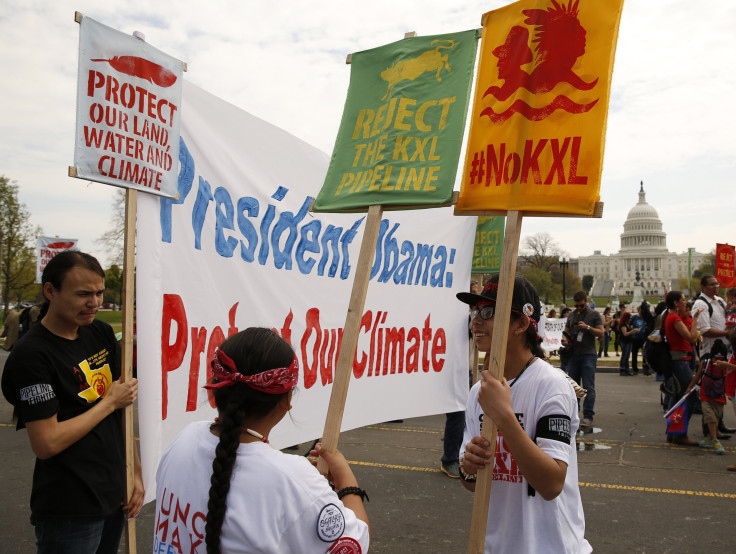Keystone XL Pipeline Battle Brews In South Dakota: Activists Allowed To Join State Legal Proceedings

As the Obama administration keeps delaying its decision on the Keystone XL pipeline, the battle over whether to build — or block — the proposed oil conduit is ramping up in the states. In South Dakota this week, regulators gave opponents an important boost by allowing more than 40 environmental groups, tribal leaders and landowner activists to participate in legal proceedings around a critical construction permit.
The state’s Public Utilities Commission on Tuesday granted the opponents formal “party status,” which enables the groups and individuals to present evidence and question witnesses. TransCanada Corp., Keystone XL’s builder, had previously filed paperwork to block the activists from joining the legal process.
At stake is a certificate that would grant TransCanada permission to build a 313-mile segment through South Dakota. The utilities commission initially issued such a permit in 2010 that placed more than four dozen conditions on the project. Last June, however, without an inch of the segment built, the approval lapsed. Now TransCanada must prove to regulators that it can still meet the original conditions laid out four years ago.
If completed, the $5.4 billion Keystone XL would carry heavy tar sands crude oil more than 1,100 miles from Alberta, Canada, through Montana and South Dakota before ending in Steele City, Nebraska. From there, it would link up to an existing segment that runs to refineries on the Texas Gulf Coast.
Proponents say the pipeline is critical for expanding Canadian oil development and enabling more oil to flow to foreign markets — and that’s precisely why environmentalists oppose the project. They argue that ramping up production of heavy Canadian tar sands oil would in turn boost global emissions of carbon dioxide, which cause climate change. For activist groups like Bold Nebraska and the Cowboy and Indian Alliance, the re-approval process in South Dakota offers a chance to halt or delay a significant slice of the pipeline.
TransCanada has maintained that little about the project has changed physically since 2010, save for “minor variations designed to accommodate landowner concerns and improve constructability,” according to a filing to South Dakota regulators. But the energy firm said the cost of building that segment had more than doubled to nearly $2 billion over that time frame while TransCanada awaited a federal go-ahead.
A hearing date in South Dakota hasn’t yet been set.
In neighboring Nebraska, meanwhile, the state’s highest court is considering a ruling that could cancel the proposed 300-mile segment in that state. The Obama administration, which has the final say on the Keystone XL since it crosses an international boundary, said it will wait until the Nebraska dispute is resolved before rejecting or approving a presidential pipeline permit.
© Copyright IBTimes 2024. All rights reserved.





















